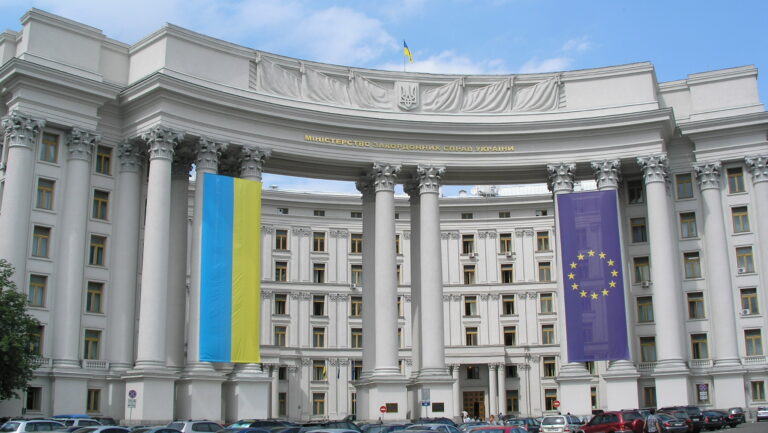Writing an analysis of election results the day after the election is always challenging. This is particularly true when multiple elections are taking place simultaneously within the same country. Yesterday, in Hungary, people voted on the composition of local governments; county assemblies; the mayor of the capital, Budapest; and the 21 MEPs representing the country in the European Parliament. This alone is exciting, but the intense campaigning, global geopolitical developments, and the high stakes of the EP elections—war or peace—made last night even more tense.
Before delving into the results in more detail, the most important lesson to be drawn from yesterday’s elections—a point to be rubbed in the face of the Brussels ‘rights activists’ and bureaucrats who constantly criticize Hungary—is that Hungarian democracy has perhaps never been in such good shape. As Hungarian Prime Minister Viktor Orbán pointed out in his speech last night, the unusually high turnout—around 60 percent overall—for local government and EP elections shows that
‘Hungarian democracy is doing well, thank you very much.’
Hungarian democracy, which allegedly has taken a path similar to Putin’s Russia—at least according to some EU politicians— has also witnessed the closest-ever Budapest mayoral election race. As things stand, Gergely Karácsony, supported by the traditional opposition parties, looks set to retain his position, beating Dávid Vitézy, a joint candidate of LMP and a civil society organization, by just 324 votes. Alexandra Szentkirályi, the Fidesz candidate, withdrew from the campaign trail in favour of Vitézy.
While it is disappointing that a politician who entirely serves the political interests of the left has once again been elected to a position that requires pragmatic governance, the result is not surprising. Budapest has become a ‘citadel’ of the opposition in recent years, and the results of the current elections show—in line with the European trend—that the urban–rural (liberal–conservative) divide in electoral preferences is widening.
‘This evening it will not be revealed who the mayor of Budapest will be,’ Dávid Vitézy said in a speech early Monday morning, suggesting that the close result could lead to a recount. This is a possibility, so we can’t be 100 percent sure who will be mayor.
At the national level, however, the success of the governing parties is clear: in all county assemblies—except for Budapest—Fidesz–KDNP representatives won a majority. Although the governing parties lost three cities with county rights, they won four: in Eger, Miskolc, Baja, and Salgótarján, where the incumbent opposition candidates were defeated.
Treason Does Not Pay
The real test of strength, however, was the EP election, which—despite Brussels POLITICO’s attempts to portray it as a resounding failure for Viktor Orbán—were won by the governing parties. Fidesz–KDNP received more than two million votes (no party has ever received so many in an EP election in Hungary) and came first with 44.62 per cent of the vote. In second place, 15 percentage points behind, was political newcomer Péter Magyar’s party, Tisza, with 29.69 per cent. The traditional left-wing opposition coalition (MSZP–DK–Párbeszéd–Greens) received just over 350,000 votes (8.1 per cent), while the radical right-wing Mi Hazánk (Our Homeland) came in fourth with 6.76 per cent.
This means that nineteen of the MEPs from Hungary will join a right-wing group, and only two will join a left-wing group in the new EP. Consequently, one may argue, the traditional left, the traditional opposition, has effectively ceased to exist in Hungary.
The biggest loser in the EP election was clearly liberal Momentum, which received just over 3 per cent of the vote. Momentum’s two MEPs, Anna Donáth and Katalin Cseh, used the last EP cycle to do everything they could to ensure that Hungary does not receive the EU funds it is rightfully entitled to. The two MEPs voted for every resolution condemning Hungary, used every speech to withhold EU funds, and, as a Hungarian party, pursued perhaps the most anti-Hungarian policy in the entire EU. However, as Viktor Orbán said, those who work against their own country will be judged by voters accordingly.
The incredibly poor performance of Momentum has shown that
the anti-Hungarian policies of the left cannot succeed in Hungary.
Overall, treason does not pay. This should be obvious to any reasonable person, but this cannot be said of Momentum. This is also clear from the speech made by top candidate Anna Donáth after the elections, in which she stated that they do not measure performance in percentages and that their party is known throughout Europe. Anna Donáth has since resigned from her post—reality kicked in, obviously.
A Copycat Without Identity
Of course, it is essential to mention the new ‘Frankenstein-like’ formation of the opposition, Péter Magyar and the Tisza party. There is no doubt that, on the opposition side, Tisza is currently the party that can mobilize voters the most effectively, but their programme and vision of politics are neither innovative nor new. This is why it is apt to compare it to Frankenstein’s monster: presenting itself as right-wing, copying most of the government parties’ visions regarding the EU, and attacking Fidesz and Viktor Orbán
along a left-wing narrative, all with the enthusiastic support of the left-wing media.
We only have to listen to the first sentence of Péter Magyar’s election speech: ‘Dear Fellow Hungarians, today an era has ended and today the future has begun in Hungary.’ It is no coincidence that these words sound familiar: they echo Viktor Orbán’s signature greeting (‘Dear Fellow Hungarians’) and Fidesz’s 2002 election slogan (‘The future has begun’). Péter Magyar and the Tisza party have nothing original to offer; like true copycats, they borrow from both the right and the left, hoping to turn anything they can into political capital.
This approach seems to have worked for them—albeit not at the expense of the governing parties, but at the expense of the traditional left. However, being a very new political community, the coming months will be crucial in determining their ability to build a real political force from a party initiative without any identity. It also remains to be seen whether they can sustain voter interest, which they clearly do not owe to their programme.
Many Questions Unanswered
Although there is no need to justify victory, we must now turn to the result of Fidesz–KDNP in the EP election: 44.6 per cent. With this result, the governing parties would have secured another two-thirds majority in a parliamentary election. This is the third-largest margin of victory in Europe, following the winners in Malta and Romania, as we reported earlier today. The fact that the opposition and international media portray this as a poorer performance is only because we are all accustomed to Fidesz’s landslide victories. However, after 14 years in power, it is natural that some voters are enticed by the novelty of the new kids on the block.
Moreover, in recent years, Europe has been rocked by numerous crises, and in such situations,
voters are more inclined to punish the reigning government with their votes.
A clear example is France, where President Emmanuel Macron called early elections immediately after his party’s disastrous performance, and Belgium, where Prime Minister Alexander de Croo resigned following the results of the EP elections.
In comparison, Fidesz ended the election with a very good result, despite having to fight against significant headwinds. In contrast, the left, as we know it, has been a complete failure, virtually ceasing to exist, and it remains to be seen how it can recover from this new setback. There are still many questions about Péter Magyar and his party, including their true identity. One thing is certain: we have an exciting two years ahead of us until the parliamentary elections.
Related articles:








